Photo: Christopher Polk/NBC/NBCU Photo Bank via Getty Images
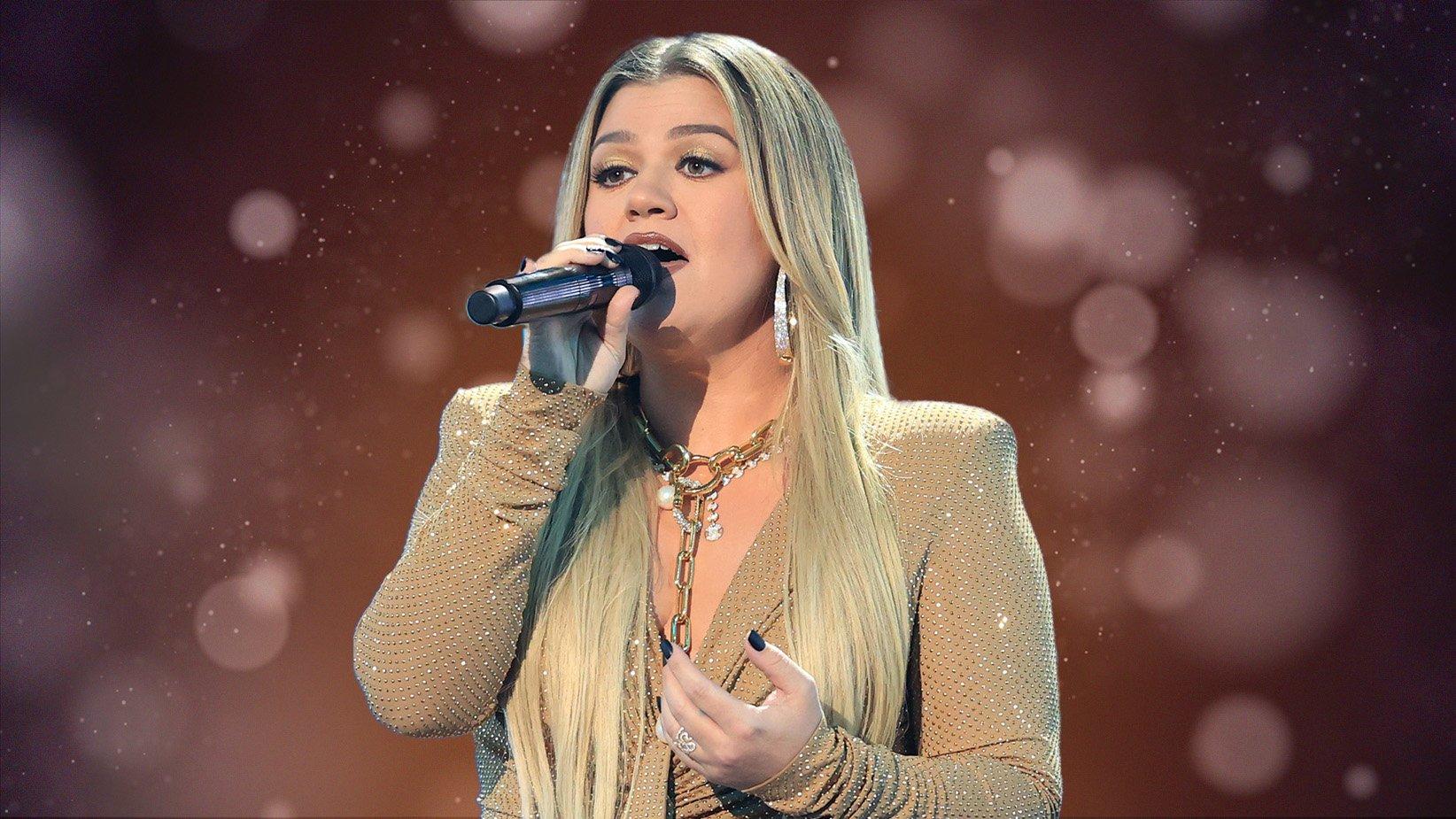
feature
Kelly Clarkson's Road To 'Chemistry': How Her Post-Divorce Album Completes A Journey Of Resilience & Musical Freedom
With her tenth studio set, the pop superstar traces the entire arc of her relationship with ex-husband Brandon Blackstock, every stage of grief from anger to acceptance included.
Kelly Clarkson's path to stardom is the stuff of modern legend. The pop star may be on the verge of releasing her tenth album, chemistry while simultaneously hosting one of today's most beloved talk shows, but she's been America's sweetheart since the day fans first met her.
In May 2002, a fresh-faced, 19-year-old Kelly showed up in Dallas to audition for a brand new reality show called "American Idol." She belted out Madonna's "Express Yourself" and Etta James' "At Last" in a homemade outfit she'd crafted from an old pair of jeans, claiming, "I'm gonna be a fashion designer if this doesn't work out." Just before she received a golden ticket from judges Paula Abdul, Randy Jackson and Simon Cowell, the show's narrator offered a fortuitous prediction: "call it a hunch, but we don't think Kelly is gonna need that plan."
Over the course of the next 13 weeks, the singing competition became the surprise hit of the summer, and its millions of viewers fell in love with Clarkson's bubbly, infectious personality and unforgettable voice. She was crowned the very first American Idol on Sept. 4, 2002 — but her journey to superstardom had only just begun.
Clarkson's winning prize included a recording contract with RCA Records, and her debut album, Thankful, arrived a short seven months after she clinched the "Idol" crown. Her coronation single, "A Moment Like This," and the LP both shot to No. 1 on the Billboard Hot 100 and Billboard 200, respectively. The album's lead single, "Miss Independent," also became a Top 10 hit and earned the newly christened star her first Grammy nomination for Best Female Pop Vocal Performance, proving the reality competition was merely a launchpad for the long and acclaimed career ahead (From Justin to Kelly notwithstanding).
While Thankful showed Clarkson's potential as a recording artist, her 2004 followup Breakaway turned her into a superstar. Though it only bowed at No. 3 on the Billboard 200, the album contained a veritable parade of hits — from the Avril Lavigne-penned title track and "Behind These Hazel Eyes to " "Because of You" and "Walk Away" — not to mention "Since U Been Gone," which remains one of her signature songs. Breakaway also took Clarkson from GRAMMY nominee to winner, as she took home Best Pop Vocal Album and Best Female Pop Vocal Performance for "Since U Been Gone" at the 2006 ceremony.
Now, how does one follow up a pop album that enthroned one of the biggest pop stars of the 21st century? By taking a hard left turn and leaning into a brash, more alt rock-oriented sound. Clarkson's third full-length, My December, was a jarring change of pace for many fans — just take one listen to the biting kiss-off of lead single "Never Again" — but it was a choice she had to fight hard to make. Despite the fact that she'd had a hand in writing half the songs on Breakaway, as well as "Miss Independent" and three other tracks on Thankful before that, RCA fought Clarkson over the creative direction of My December.
She publicly butted heads with CEO Clive Davis after the album's release, with the legendary record producer later slamming the project in his 2013 autobiography. Clarkson issued a public response defending My December and revealed her bad blood with Davis actually dated back to the time she played him "Because of You" — one of her most autobiographical and vulnerable songs, which is still her biggest streaming hit to date.
"I cried because he hated it and told me verbatim that I was a s—ty writer' who should be grateful for the gifts that he bestows upon me," she wrote at the time. "He continued on about how the song didn't rhyme and how I should just shut up and sing…But I continued to fight for the song and the label relented. And it became a worldwide hit."
For her fourth album, 2009's All I Ever Wanted, the star returned to a brighter, more pop-friendly sound, yet the trouble behind the scenes continued. Going into the writing process, Kelly had just one request: not to work with producer Dr. Luke, who was credited as a co-writer on both "Since U Been Gone" and "Behind These Hazel Eyes," again. But RCA had other ideas, and essentially forced her to collaborate with the embattled superproducer on lead single "My Life Would Suck Without You."
"I'm not gonna lie, I was totally bawling on the phone with my manager at the time," she recounted years later on the Rolling Stone Music Now podcast. "And you know, you're essentially powerless unless you say — like I had before — 'No, I'm not gonna do this.' And then they sit on your record, your tour suffers, your sales suffer, everyone suffers because of me, because of my decision."
In the face of a seemingly lose-lose choice, Clarkson made the best of a bad situation and completely rewrote the song to say exactly what she wanted. Though her songwriting went uncredited, for Kelly, it was more important that she weathered the drama with her integrity intact. And her resilience paid off: "My Life" scored her another No. 1 Hot 100 hit, and All I Ever Wanted became the singer's second No. 1 album on the Billboard 200.
In 2011, the superstar released her fifth album, the aptly titled Stronger. Though radio trends were shifting with the start of a new decade (as well as the arrival of a new generation of pop stars, like Lady Gaga and Justin Bieber), Clarkson hewed closely to her trusty pop-rock roots on the project — a decision RCA didn't seem to have a problem with. "This is the first record that my label and I have agreed on everything," she told The Guardian upon its release. "I'm crossing my fingers that there's no more drama."
Greatest Hits – Chapter One, a compilation to mark 10 years since her "Idol" win, followed a year later. On "Catch My Breath" — one of the record's three new songs — the star encapsulated the hard-won truths she'd gleaned from the previous decade, and revealed how they'd left her wiser, stronger and more empowered. "I've spent most of my life/ Riding waves, playing acrobat/ Shadowboxing the other half/ Learning how to react," she sings. "I've spent most of my time/ Catching my breath, letting it go/ Turning my cheek for the sake of the show/ Now that you know this is my life/ I won't be told what's supposed to be right."
In 2013, Clarkson kicked off her second decade in the spotlight by marrying Brandon Blackstock, a successful music manager who also happened to be the stepson of Reba McEntire. Weeks after the wedding, the singer dropped her first holiday album, Wrapped in Red. As hinted in "Winter Dreams (Brandon's Song)," a lush love song penned for Blackstock, their marriage would inspire much of Clarkson's future music — for better or worse.
By 2016, Clarkson delivered the final album under her contract with RCA. Recorded while she was pregnant, Piece by Piece was presented loosely as a concept album, exploring new chapters of maturation in the singer's life — like the birth of her first child ("Heartbeat Song") and making peace with her childhood trauma after being abandoned by her father ("Piece by Piece") — through an airy, kaleidoscopic lens that mirrored the set's prismatic cover art.
The emotional title track also served as a powerful counterbalance to "Because of You." On the ballad, she laid bare the stark differences between her negligent father and her husband, singing, "He never walks away/ He never asks for money/ He takes care of me/ He loves me/ Piece by piece, he restores my faith/ That a man can be kind and a father could stay."
"My husband is such a great father. He's not an audience guy — he is onstage doing the work with me…We're definite partners," Clarkson opened up in Glamour at the time. "Sometimes girls with daddy issues don't find men like that! You find men who are all you knew, and I just feel so lucky."
The next few years were a time of seismic change in Clarkson's career, not least because she was finally a free agent for the first time in her career. "It was my first time to pick a label to work with," she said in a 2017 interview with iHeartRadio, adding of her 15 years with RCA, "I definitely didn't get to spread my wings as an artist and really do the albums I was really wanting to make."
Finding a new home at Atlantic Records, the superstar set out to make 2017's Meaning of Life, an album she described as "the record I wanted to make when I was in junior high." Taking a cue from Aretha Franklin's own move to Atlantic in the mid-'60s, Clarkson tapped into a retro-soul sound and gave fans more glimpses of how much her relationship with Blackstock had impacted her. ("When you hold me, I finally see/ When you say love, I know what it means/ I was broke down so long in the dark/ Until you showed me the light, baby/ 'Cause when you kiss me I know who I am/ And when you let me feel it, I understand/ When I'm lost I just look in your eyes/ You show me the meaning of life," she sang on the LP's throwback-leaning title track.)
"It's a grown ass woman's record," she told iHeartRadio. "Because with these same songs, even after winning'Idol,' I would not have made this record, it would not sound like it does now. 'Cause I think with this record, you have to have lived through certain circumstances; I had to've had all those hurdles and all those things to really appreciate the gravity of the situation that I'm in right now, and knowing the difference."
Just four months after releasing Meaning of Life, Kelly returned to reality TV by joining NBC's "The Voice" as a coach. Then in 2019, her empire grew with the launch of The Kelly Clarkson Show. The foray into daytime became an instant hit, also giving Clarkson a platform to prove she truly could sing literally anything, thanks to her daily "Kellyoke" performances at the top of each episode. (The popular segment would eventually birth a 2022 EP of the same name, with the songstress covering everything from Billie Eilish's "Happier Than Ever" and Linda Ronstadt's "Blue Bayou" to Whitney Houston's "Queen of the Night" and "Fake Plastic Trees" by Radiohead.)
However, as her star rocketed ever higher, the bonafide multi-hyphenate's personal life was headed for major turbulence. After eight years together with two kids and two stepchildren, Clarkson filed for divorce from Blackstock in June 2020. At the time, the coronavirus pandemic had thrown the world into complete chaos, and though she still had a talk show to host (plus a team of hopefuls to coach on Season 19 of "The Voice"), Clarkson first channeled her heartbreak into, well, more Christmas music.
Released ahead of the 2021 season, Kelly's second Christmas album, When Christmas Comes Around…, is an altogether different kind of holiday party from Wrapped in Red. The album is filled with melancholy (a downtempo "Last Christmas"), wistful longing ("Merry Christmas (To the One I Used to Know)," which she now calls "the saddest song I think I've ever written") and even a dash or two of well-earned yuletide spite ("Christmas Isn't Canceled (Just You)"). But as Clarkson explained in her NBC holiday special that December, the Christmas season really is a time to feel all of your feelings, not just the holly jolly ones.
As the calendar turned a page to 2022, fans expected a proper non-holiday divorce album would be imminent. But Clarkson wasn't about to rush the process, only giving periodic updates that she was hard at work in the studio. In the end, the wait turned out to be nearly three years by the time she announced chemistry at the end of March.
"I wasn't sure I was going to release it, but I am," Clarkson admitted when she broke the news on social media. "This album is definitely the arc of an entire relationship, and a whole relationship shouldn't be brought down to just one thing. So there's the good, the bad and the ugly kinda thing going on in it. Chemistry can be a really amazing, sexy, cool, fun thing. But it can also be very bad for you…I thought it was kind of the perfect title to describe the entire album."
Keeping in line with the idea that the project couldn't be distilled down to a single emotion, she kicked off the rollout with not one, but two lead singles in the form of "me" and "mine." The two tracks are dual sides of the same coin — the former finding a fragile empowerment on the other side of heartache; the latter reveling in the thought of a romantic traitor someday receiving his just desserts.
The album's 14 songs show that Clarkson feels no longer confined — not only by her broken marriage, but also her former label's perception of her place in popular music. Chemistry runs the veritable gamut of emotion and sonic palette alike: "favorite kind of high" is an EDM-laced confection about a passionate love, while balladic opener "skip this part" swirls with despair over a breakup.
Elsewhere, there's "I hate love" a folksy yarn (helped along by Steve Martin's bouncing Banjo) that proves Clarkson can approach the subject of her romantic jadedness with a winking, rage-filled sense of humor. And the Wild West kitsch of "red flag collector," with its whistling, desperado-style intro, saloon-ready player piano and mariachi horns, is equally matched by its truly blistering takedown of the unlucky schmuck on the receiving end of its lyrics.
Though the arc of the album is equal parts harrowing, emotional, reflective, and vengeful, the singer promises she's arrived on the other side — with her integrity and artistry not just intact, but revived.
"I wrote most of these songs at 35,000 feet in the air when it was dark on a plane, taking my kids back and forth, and it was exhausting — emotionally, mentally, physically, all the things — while working, and while processing what's going on and what I'm gonna do," she recently said while teasing the yearning piano track "lighthouse." "I wrote this song and I was like, 'I don't think I should release this. People are gonna be like, is she OK?' And I wasn't — then. But I'm good now."
Adele's Biggest Songs: 12 Tracks That Highlight Her Monumental Success & Stunning Vocals
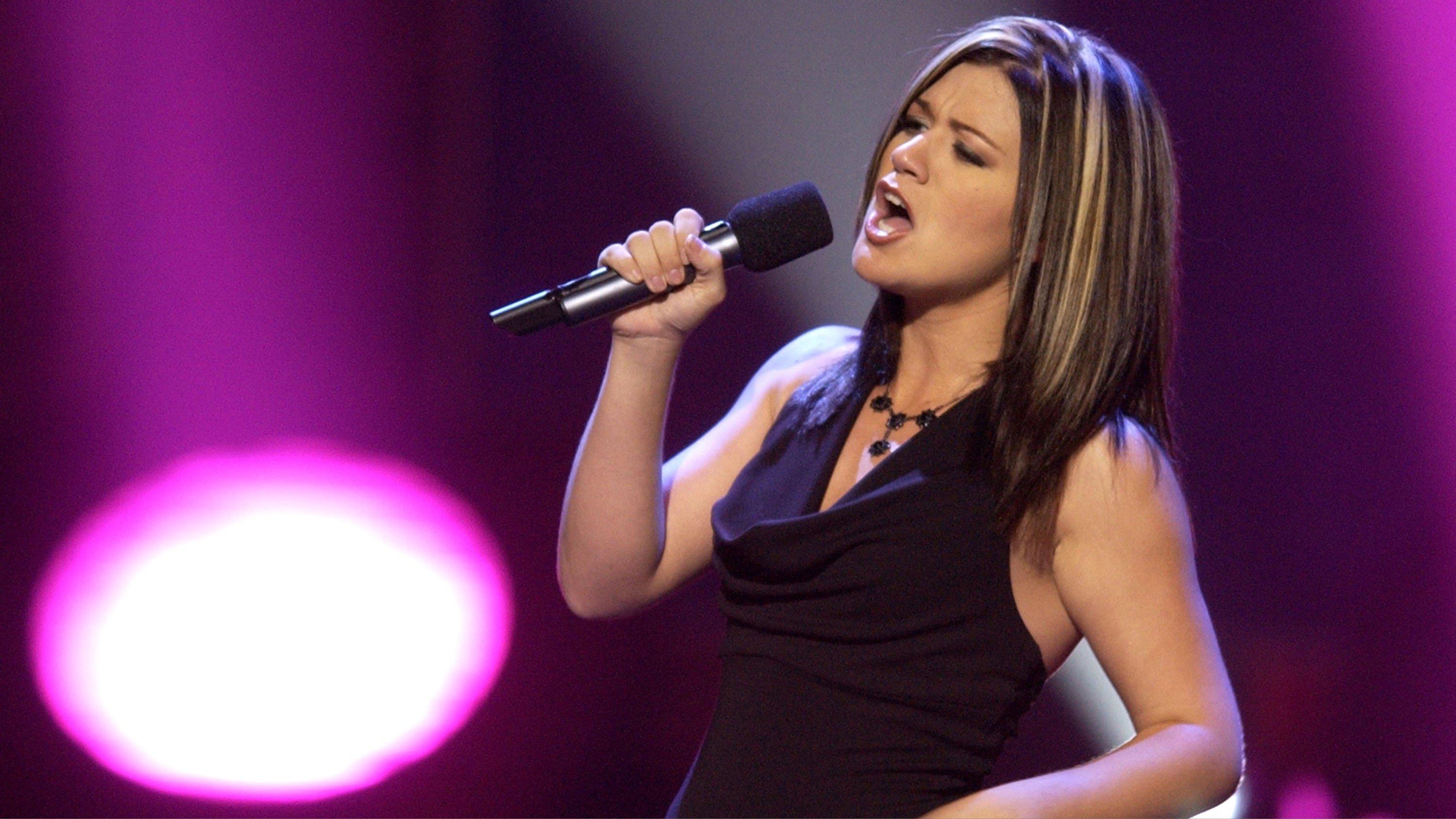
Photo: Steve Granitz / GettyImages
news
On This Day In Music: "American Idol" Premieres On Fox Network
For decades, "American Idol" has been instrumental in discovering some of music’s biggest names and pioneering the reality TV contest genre. As the show enters its 22nd run, here’s a look at how it has become an iconic household staple across the country.
For countless Americans, "American Idol" is intertwined with core memories as a show that had families eagerly glued to their TVs twice a week. It brought generations together, creating moments of both suspense and excitement that are still remembered today, as the show continues to run in its 22nd season.
Created by visionary entrepreneur Simon Fuller, "American Idol" premiered on June 11, 2002, as a fresh spin-off of the British program "Pop Idol." It revolutionized how Americans engaged with reality TV through its interactive, viewer-driven voting system, which encouraged audience participation in the success of their favorite contestants. The show also offered viewers a glimpse into contestants' candid backstories and personal journeys, anchoring emotional investment and skyrocketing the show's popularity.
The show's debut season featured a dynamic trio of judges: singer Paula Abdul, TV personality Simon Cowell, and producer Randy Jackson. Their contrasting personalities brewed a chemistry as captivating as the hopeful performances. Abdul’s warmth, Cowell's blunt wit, and Jackson’s humor added extra layers of entertainment, making the twice a week broadcasts a must-watch.
The first season of "American Idol" also unforgettably introduced the country to Kelly Clarkson. Since her debut — with a heart-tugging backstory about being the average girl-next-door with big dreams — Clarkson has gone on to tour the world, host her own TV talk show, and secured her spot as one of music’s most beloved talents.
"I had dreams since I was a little girl that I wanted to be on the GRAMMYs, or some award show and sing on there," Clarkson mentioned in her pre-audition interview. Flash forward 22 years, the pop singer has accumulated 17 GRAMMY nominations and three wins, propelled by a powerful vocal gift.
Other artists who launched their careers from the show's platform include Jordin Sparks, Carrie Underwood, Adam Lambert, and Jennifer Hudson, who each serve as testament to the show’s impact in music.
"American Idol" has not only opened our eyes to some of our favorite musicians, but it also has given us some of our favorite pop culture moments.
A video that frequently resurfaces on social media captures a memorable moment between Katy Perry and contestant Noah Davis, where they bond over the slang term 'wig'.
"No, it’s not your language. It’s just for us," Perry joked to her fellow judges, Lionel Richie and Luke Bryan, when they questioned the term’s meaning.
After two decades on air, "American Idol" has etched a lasting legacy in pop culture. It has paved the way for other reality TV music shows and created lasting memories for music fans along the way.
“The show transcends age, gender, ethnicity, everything,” Underwood told Billboard in 2005.
Explore More History-Making Moments In Music
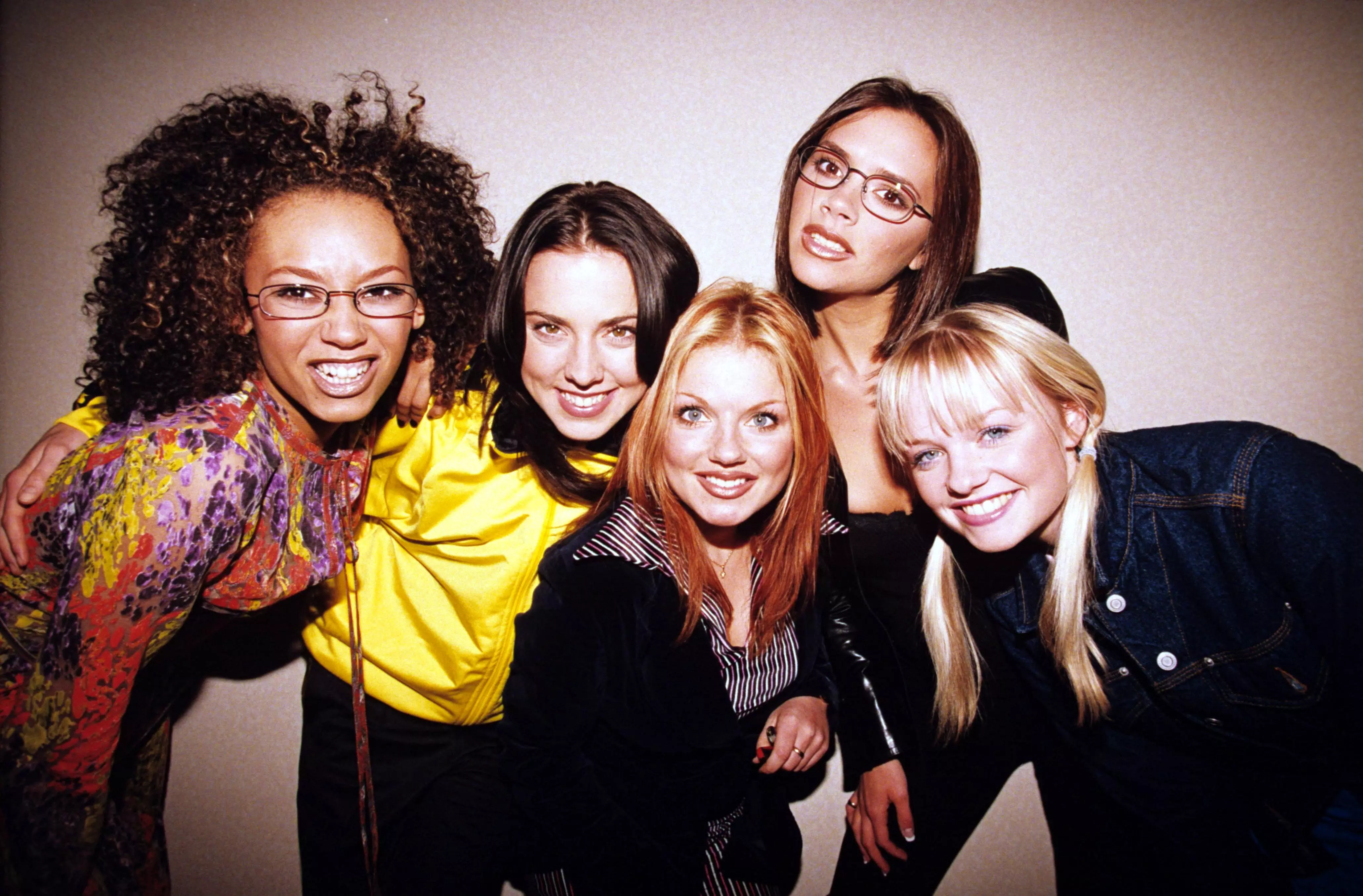
On This Day In Music: Spice Girls Release "Wannabe," Their Iconic Debut Single
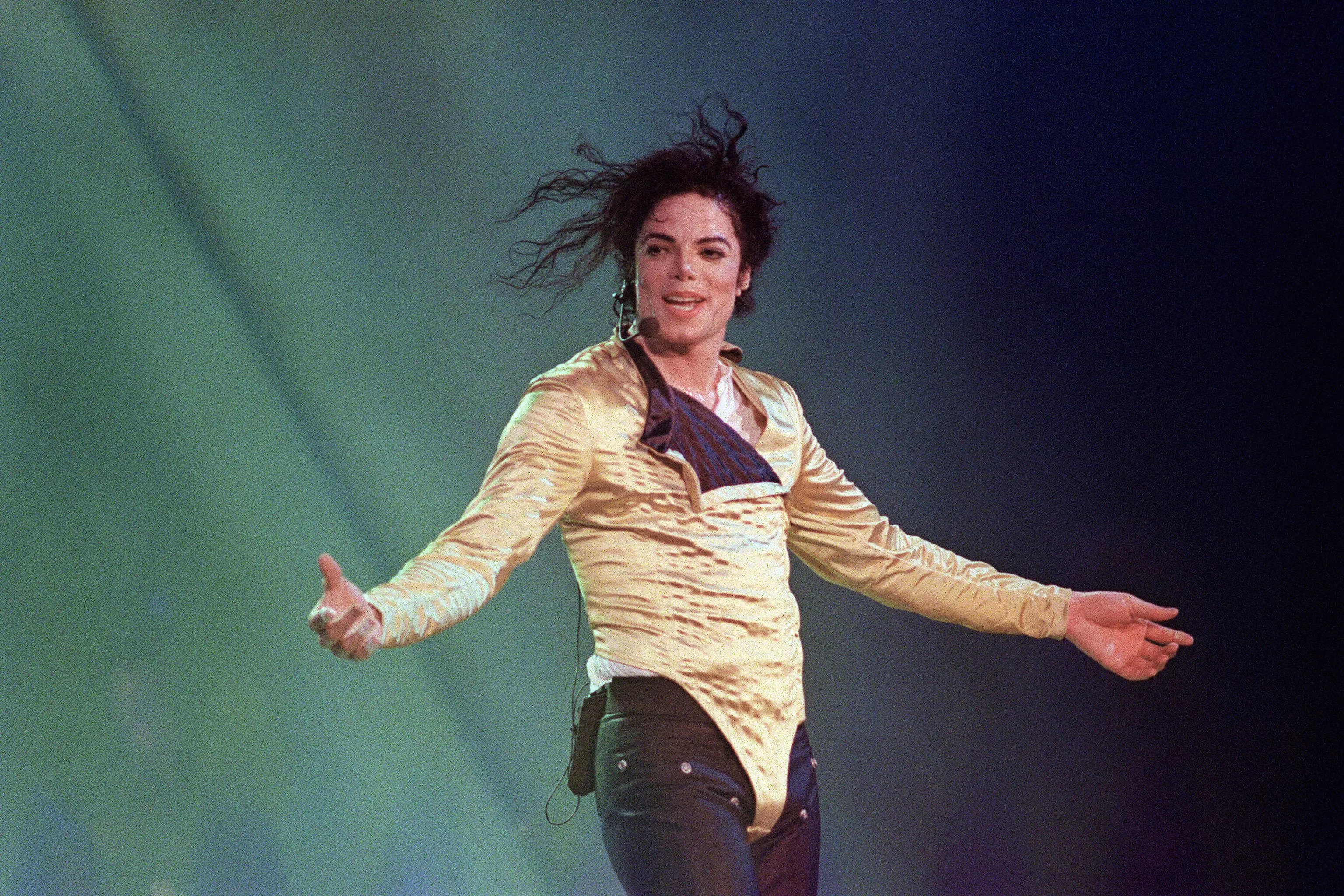
On This Day In Music: Michael Jackson Passes Away In Los Angeles At Age 50
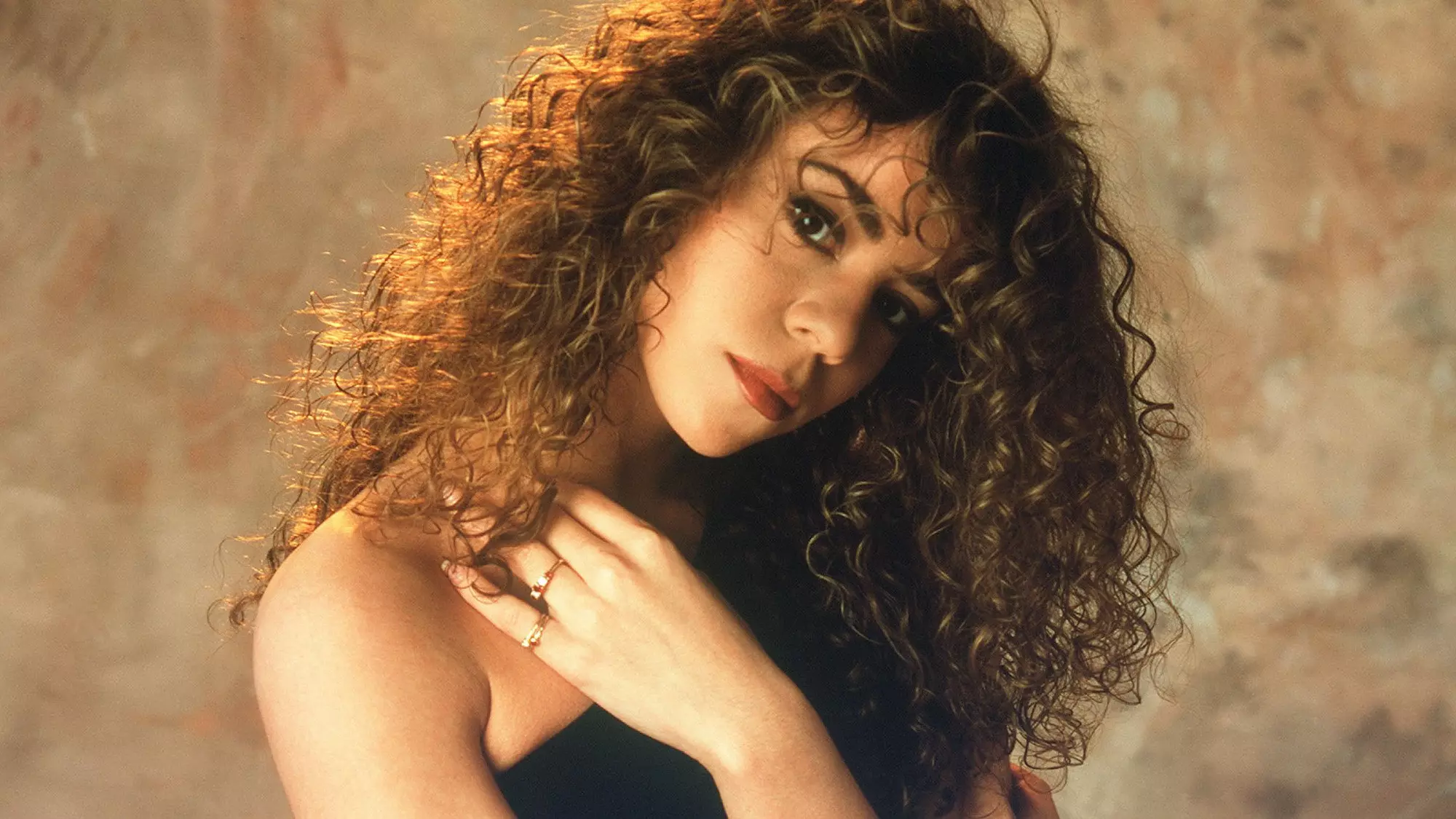
On This Day In Music: Mariah Carey Releases Her Self-Titled Debut Album
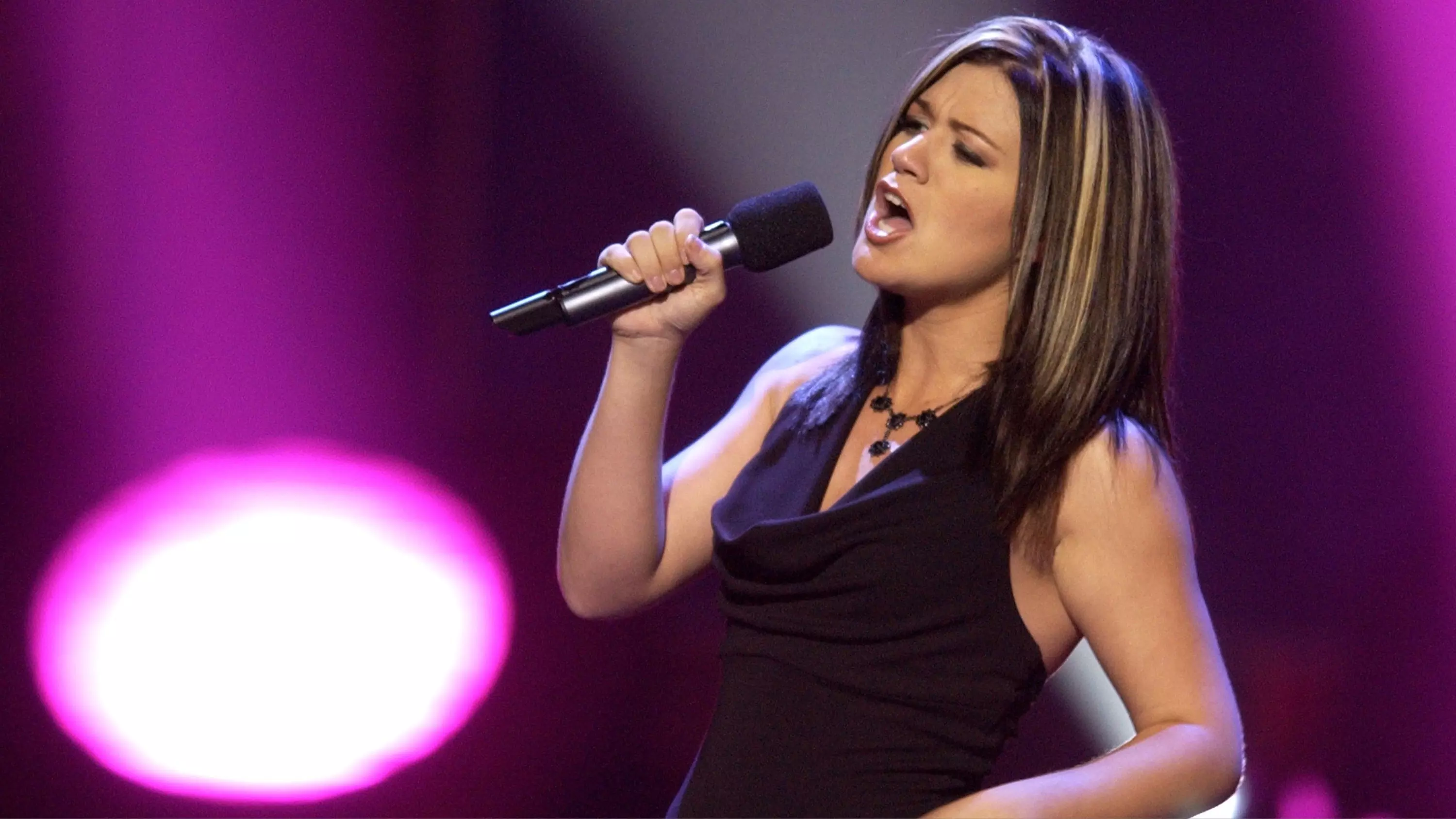
On This Day In Music: "American Idol" Premieres On Fox Network
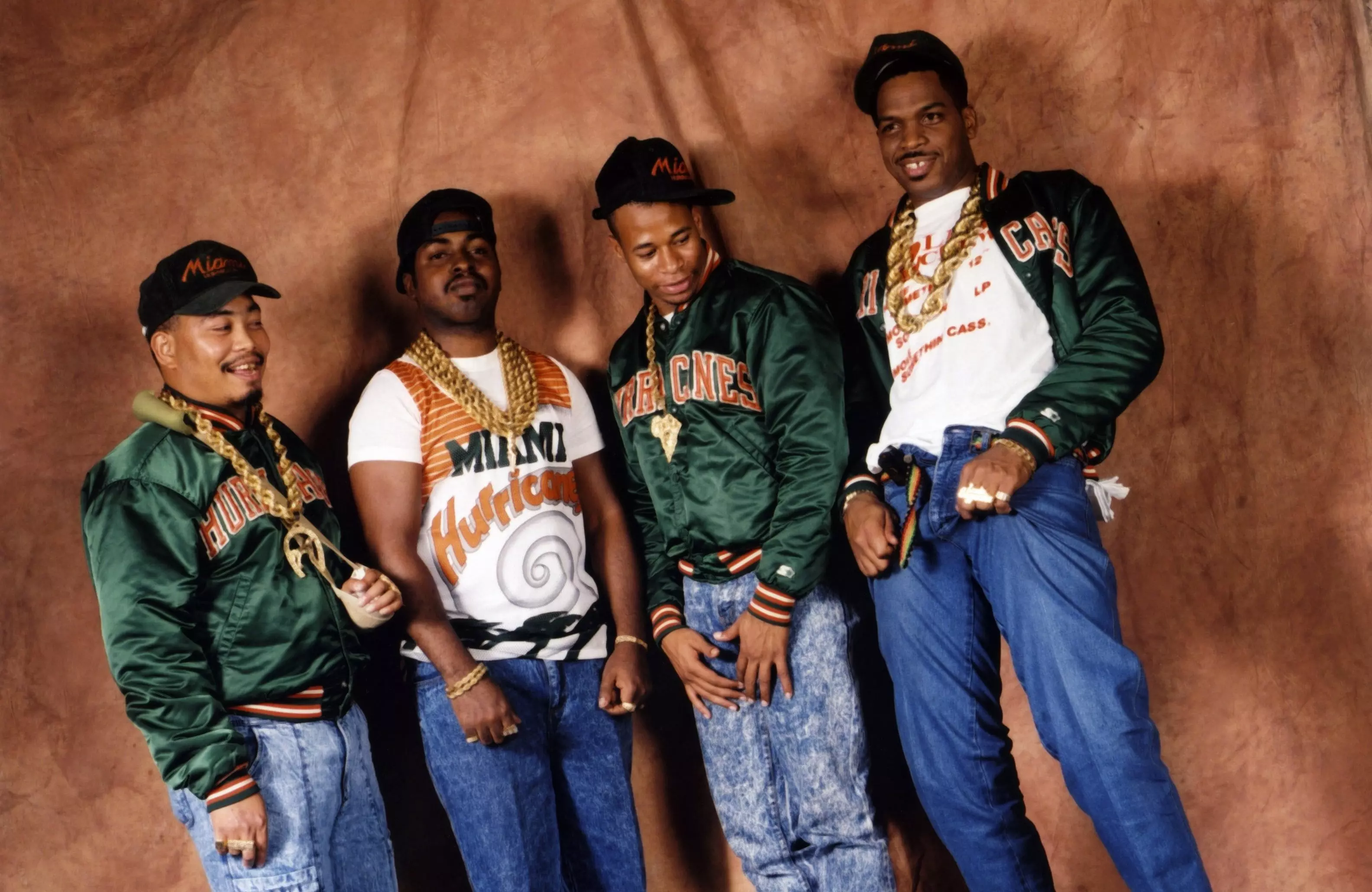
On This Day In Music: 2 Live Crew's 'As Nasty As They Wanna Be' Becomes First Album Declared Legally Obscene, Anticipates First Amendment Cases
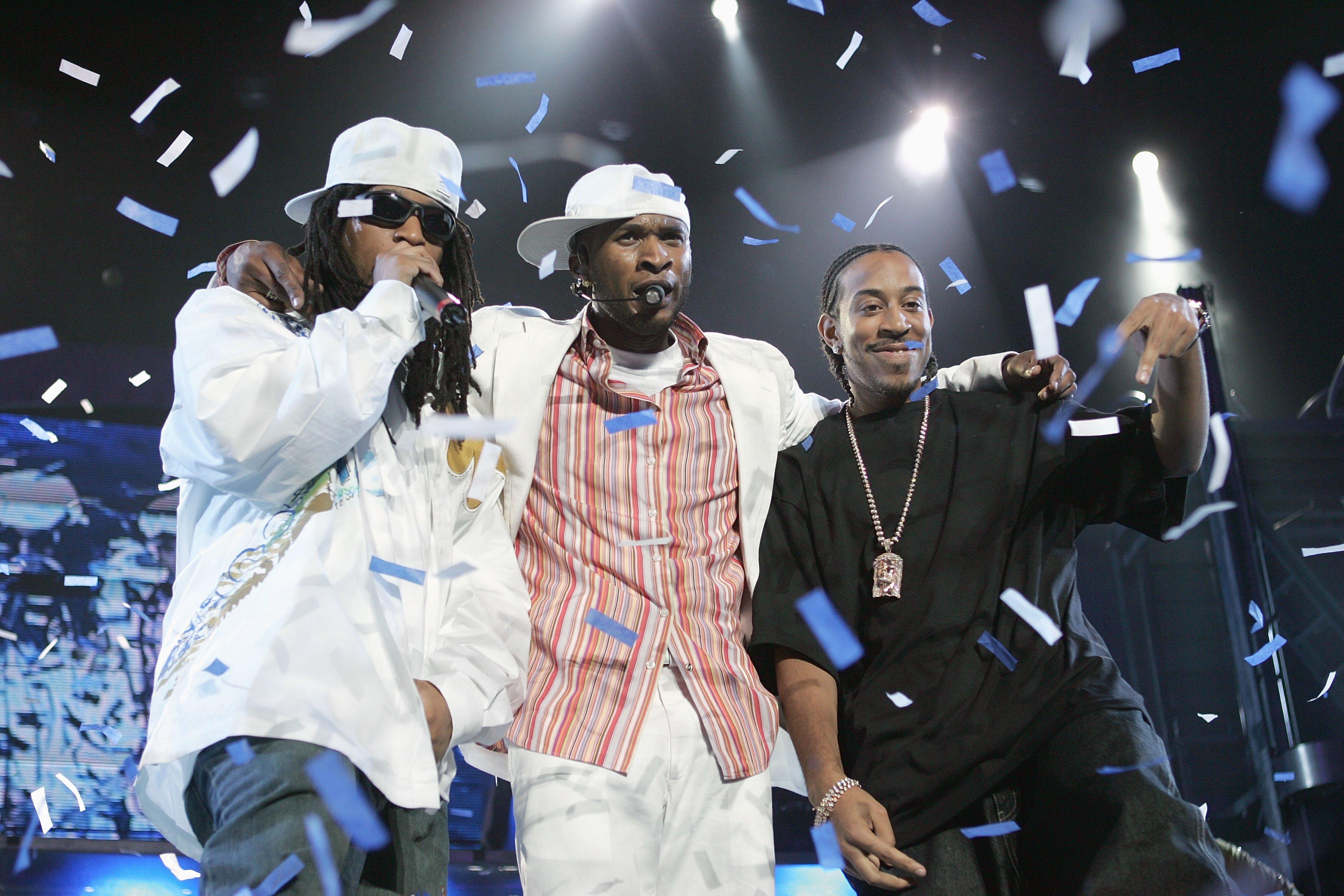
Photo: Frank Micelotta/Getty Images
news
24 Songs Turning 20: Listen To 2004's Bangers, From "Yeah!" To "Since U Been Gone"
Ready to feel old? Put on this playlist of hits that made 2004 a year of belt-along jams and unforgettable hooks, including Daddy Yankee's "Gasolina" and Ashlee Simpson's "Pieces Of Me."
A quick Google search of "top 2004 songs" can be summarized simply: What a time to be alive.
While it was arguably the year of Usher — who scored four Billboard Hot 100 chart-toppers in 2004, including the year's biggest song, the Lil Jon- and Ludacris-assisted "Yeah!" — there were countless hits that have aged impeccably. Even 20 years later, there isn't a dance floor or karaoke bar that wouldn't go wild for J-Kwon's "Tipsy" or Kelly Clarkson's "Since U Been Gone."
Whether you were jamming to them on your iPod Mini or ripping them off of Limewire, revisit 24 tracks that made an impact — and still serve up the vibes 20 years later.
Listen on Spotify, Amazon Music, or Apple Music below.

Photos (L-R): Buda Mendes/TAS23/Getty Images for TAS Rights Management, Todd Owyoung/NBC via Getty Images, Kevin Mazur/Getty Images for MTV, Mike Coppola/Getty Images for MTV, Theo Wargo/Getty Images
list
2023 In Review: 5 Trends That Defined Pop Music
From massive world stages to hilarious TikTok trends, pop music was all about the fun in 2023 — which led to huge hits and pop culture moments alike.
There's arguably only one way to sum up pop music in 2023: it belonged to the women.
Whether SZA or Olivia Rodrigo were revealing the cracks in their relationships through catchy hooks, or Taylor Swift was taking over stadiums around the globe, female artists dominated genre charts and trends. And even a fictional female figure helped spawn some of the year's biggest pop tracks.
It was also a big year for legends and classic hits; pop mainstays showed just why they became superstars in the first place, and TikTok helped resurface some pop songs of old.
Below, take a deeper dive into some of 2023's biggest moments in pop.
Ex-Lovers Were Called Out
Nothing burns more than a woman scorned. This year, pop stars and rising artists were both shameless in calling out their exes for their wrongdoings.
One of the biggest moments came courtesy of SZA. The artist is known for wearing her heart on her sleeve, and SOS album highlight "Kill Bill" was a buffet of toxic "what if" scenarios. The singer let jealousy overcome her emotions as she couldn't stand to see her ex-lover move on: "I might kill my ex, I still love him though/ Rather be in jail than alone." On a similar note, Olivia Rodrigo's "vampire" finds the pop star tapping into a new level of fury. The lead single from her sophomore album, GUTS, "vampire" shoots bloody daggers at a manipulative boyfriend.
But it wasn't all about vengeance. In Miley Cyrus' case, her best form of revenge came in the form of forgiveness. Her "Flowers" anthem was thought to be inspired by Cyrus' divorce from Liam Hemsworth, but its messaging is relatable to anyone who had to learn how to move on from a broken heart. "I can take myself dancing and I can hold my own hand/ I can love me better than you can," Cyrus assures.
All three singles topped the Billboard Hot 100 this year, marking SZA's first solo No. 1, Cyrus' first in a decade and Rodrigo's first from her new album era. The singles also all earned 2024 GRAMMY nominations for both Song Of The Year (alongside Billie Eilish's "What Was I Made For?", Dua Lipa's "Dance the Night", Jon Batiste's "Butterfly", Lana Del Rey's "A&W" and Taylor Swift's "Anti-Hero") and Record Of The Year (next to Billie Eilish's What Was I Made For?", Boygenius' "Not Strong Enough", Jon Batiste's "Worship", Taylor Swift's "Anti-Hero" and Victoria Monét's "On My Mama").
Rising stars also joined in on the fun. After Tate McRae scored her biggest hit to date with the playful “greedy,” she delivered a fiery kiss-off anthem with “exes.” Elsewhere, Benee called her ex a "waste of f—king time" on the rowdy "Green Honda," British singer Mae Stephens contemplated all of her options on "If We Ever Broke Up," RAYE brooded over "dumb decisions" and booze on "Escapism," and Los Angeles alt-pop singer Leah Kate's jam-packed her debut album Super Over with advice on cutting off toxic relationships.
Classic Songs Made A TikTok Resurgence
TikTok has proved its social media dominance over the past few years. But aside from pop's new generation enjoying viral success, the genre's OGs also found their classic hits reborn.
Colbie Caillat's "Bubbly" single warmed our hearts when it debuted in 2007, and in true Gen Z fashion, it reemerged thanks to a meme trend. TikTok users placed the song over high-energy performance videos like those of Travis Scott, Justin Bieber and Tyler, The Creator which made for a hilarious juxtaposition. Caillat kept the momentum by making TikTok duets and even sharing an acoustic version of the song on her YouTube page.
Bridgit Mendler's 2013 single "Hurricane" also got a second wind for its 10th anniversary where female users placed it over humorous self-deprecating videos about being delusional over men. Jessie J's 2011 "Price Tag" hit sparked a dance trend with a sped-up version of the song and Lana Del Rey's "Radio" (a deep cut from 2012's Born To Die debut) inspired users to make videos that showcased how "sweet like cinnamon" their lives are.
Career-Spanning Tours Took Over The World
What better way to celebrate a decorated career than with a massive tour? Pop stars from all corners of the genre commemorated their many years (or in some cases, decades) in the music industry by going down memory lane with their fans worldwide.
The most notable trek was, of course, Taylor Swift's Eras Tour, which kicked off on March 17 and will conclude on Dec. 8, 2024. The pop star — who is arguably bigger than she's ever been, nearly 20 years into her career — used the stadium tour to pay homage to her extensive discography with a nonstop three-hour spectacle. Swift's impact quickly made history: the Eras Tour surpassed $1 billion in revenue in early December, already making it the highest-grossing music tour of all time, according to Guinness World Records. Its accompanying concert film, Taylor Swift: The Eras Tour, also became the highest-grossing concert film of all time with $250 million earned globally as of press time.
But Swift wasn't the only star celebrating their music milestones on the road. After a thrilling reunion in 2019, the Jonas Brothers continued to shock fans with what's possibly the most challenging tour of their career. Titled "Five Albums. One Night. The World Tour," the trio featured their entire discography in a set list that included over 60 songs.
Another artist who rode the ambitious train was Madonna. The pop icon's Celebration Tour was, well, a celebration of a genre-defining career spanning over four decades. Kicking off in October in London, the tour features a retrospective setlist that is a treat for diehard fans, featuring singles she hasn't performed live in decades including 1990's "Justify My Love," 1998's "Nothing Really Matters" and 2002's "Die Another Day."
On the pop-rock end, The Maine's "Sweet Sixteen Tour" highlighted the band's growth over the past 16 years through nine albums, while Boys Like Girls' anchored their comeback after an 11-year hiatus with the North American Speaking Our Language Tour.
Movies Had Major Music Moments
While music has long been a driving force in films, this year saw the pairing excitedly take over pop culture. Greta Gerwig's Barbie movie notably had the world seeing pink, with the iconic doll infiltrating everything from fashion to real estate.
Not surprisingly, the accompanying soundtrack was a pop-filled joyride. Featuring production from pop mastermind Mark Ronson, the 17-song Barbie: The Album featured the likes of Lizzo, Charli XCX, PinkPantheress, Sam Smith, GAYLE and FIFTY FIFTY. But perhaps most notably, the album dominated the Best Song Written For Visual Media category at the 2024 GRAMMYs: Dua Lipa's disco-laced "Dance The Night," Ryan Gosling's TikTok-trending "I'm Just Ken," Ice Spice's and Nicki Minaj's sparkly collaboration "Barbie World," and Billie Eilish's gripping ballad "What Was I Made For?" compete with Rihanna's Black Panther hit "Lift Me Up."
The year also called for reunions and revivals, with the biggest shock arguably belonging to NSYNC. Many fans were impatiently waiting for the boys to make a return, and they did so with "Better Place." The Trolls soundtrack highlight marked the boy band's first song after a two-decade-long music hiatus (which was accompanied by an appearance at the MTV Video Music Awards, where they presented with Best Pop Video). Under the sea, Halle Bailey refreshed a Disney classic with The Little Mermaid live-action reimagining, while the nostalgia train continued with movie musicals Wonka and Mean Girls (out in January).
Pop Titans Were Inescapable
Thanks to social media, it may seem like Gen Z artists have overthrown their elder pop counterparts. But make no mistake, the veterans are showing they aren't so easily shakeable.
This year, many preserved their legacies through various mediums. Taylor Swift wasn't the only superstar proving her staying power on the road (and in stadiums); Beyoncé's Renaissance World Tour cemented her legendary status as the highest-grossing tour by a Black artist, while Ed Sheeran's The Mathematics Tour broke attendance records worldwide.
Adele and Usher ruled Sin City with their Las Vegas residencies, with the latter set to perform at the 2024 Super Bowl halftime show. The pop titans even showed their dominance on television, with Kelly Clarkson (who also had a Vegas stint) and Jennifer Hudson gaining a new audience with their respective talk shows.
After a year filled with viral moments and comebacks, we're eager to see how artists will continue to uplift pop music in 2024.
Justin Bieber's Biggest Hits: 12 Songs That Showcase His Pop Prowess And R&B Sensibilities

Photo: Ovidio Gonzalez/Getty Images for MC
list
Loving Olivia Rodrigo's "Vampire"? Check Out 15 Songs By Alanis Morissette, Miley Cyrus & More That Reclaim The Breakup Narrative
From the soft hums of Carole King's "It's Too Late" to GAYLE's fiery rage on "abcdefu," these 15 songs encapsulate the expansive emotions of women who put problematic exes in their place — far behind them.
Since the 2021 release of SOUR, critics and listeners alike have touted Olivia Rodrigo for her knack to eloquently pen the relatable woes of adolescence and the pitfalls of falling in love too hard. Her latest single, "vampire," is no different.
Despite trading in her "drivers license" teenage loverboy for an older man, the perfectly executed expression of agony remains. As Rodrigo wails on the chorus, "You made me look so naïve/ The way you sold me for parts/ As you suck your teeth into me/ Bloodsucker, famef—er/ Bleeding me dry like a g——n vampire."
But before there was Rodrigo, there was Avril Lavigne, Taylor Swift, and Alanis Morissette — none of which would be where they were without pioneers of diaristic songwriting, Carole King and Carly Simon. Thanks to the immortalization of their music, we can relive the shift from poetic disclosures of hurt, which King exemplifies on "It's Too Late," to more unrepentant, straightforward jabs (like Kate Nash says on "Foundations," "Don't want to look at your face 'cause it's making me sick") and harrowing battle cries (as Miley Cyrus roars, "I came in like a wrecking ball").
Below, revisit 15 songs by empowered women, from 1971 all the way to 2021, who reclaimed the breakup narrative with their fervent sentences of damnation — because, as the age-old saying goes, hell hath no fury like a woman scorned.
Carole King — "It's Too Late" (1971)
When Carole King released "It's Too Late" in 1971, it marked a new era of songwriting. Discussions about divorce were generally unheard of, but even more so when initiated by a woman. Yet, King carried on to unapologetically release "It's Too Late," which later won a GRAMMY for Record of the Year and is lauded by Rolling Stone as one of the 500 Greatest Songs of All Time.
On this folky track, King and her husband's inevitable parting is on the horizon, but she isn't resentful per se. Instead, she's more troubled by the embarrassment of her husband's growing discontent, admitting, "I feel like a fool." And at this point, she's ready to move on and can be grateful for the times they've shared.
Carly Simon — "You're So Vain" (1972)
In her '70s chart-topper, Carly Simon narrates the tale of an arrogant man who believes every woman is enchanted by his aura. But the folk songstress wants to make it very clear she's not impressed by his embellished stories or luxurious closet.
Usually, it's easy to guess the subject of a breakup song, but "You're So Vain" has led to decades of speculation. Many have assumed it could be about James Taylor, who Simon married in 1972 and divorced in 1983, or Mick Jagger, who provided vocals to the track (a theory that was later debunked). To this day, she has only revealed the track's inspiration to a select few, including Taylor Swift, who names Simon as one of her role models.
Joan Jett And The Blackhearts — "I Hate Myself For Loving You" (1986)
Joan Jett might not give a damn about her bad reputation, but she despises nothing more than her ex-lover making her look like a lovesick fool.
On "I Hate Myself for Loving You," the '80s chanteuse wraps herself around a classic glam rock beat, unveiling her contempt for a man who's neglected her. Stripped of her pride, Jett begins to resent herself for holding onto her feelings — as evidenced by the song's title.
She tries to hide her dwelling desires ("I want to walk, but I run back to you") but ultimately fails to rid herself of the emotions, leaving her to fantasize about the sweet justice of one day roping him back in, just to leave him.
Alanis Morissette — "You Oughta Know" (1995)
It's impossible to talk about scathing breakup songs without acknowledging Alanis Morissette's quintessential heartbreak anthem, "You Oughta Know." At the time of its release, the Jagged Little Pill single contained some of the most honest and vitriolic lyrics in existence.
Morissette begins with an illusive statement, "I want you to know that I'm happy for you," which, by the second verse, crumbles into a revelation, "I'm not quite as well, you should know." As she culminates into her most confessional, the instrumental rises into an addicting ruckus, with Morissette revealing the thoughts most of us would be too ashamed to admit: "It was a slap in the face how quickly I was replaced/ And are you thinkin' of me when you f— her?"
Shania Twain — "That Don't Impress Me Much" (1997)
Shania Twain has a particular superpower of delivering each of her lyrics with an air of lightheartedness and confidence. So, when you hear a track like "That Don't Impress Me Much," her disappointment and irritation becomes undetectable.
A quick examination of Twain's story proves — despite the song's bouncy melodies — she's jaded by her ex's preoccupation with his vehicle, appearance and intelligence. Sure, he might be perfect on paper, but he lacks the qualities of a forever lover, and his unmerited ego should be reserved for true big shots like Elvis Presley and Brad Pitt.
Michelle Branch — "Are You Happy Now?" (2003)
In the opening verse of "Are You Happy Now?," Michelle Branch pleads, "No, don't just walk away/ Pretending everything's okay, and you don't care about me." At first, she is in disbelief that her once admirer would swiftly brush her off, but as she reaches the chorus, she begins to question whether his actions were a lie all along.
Her mind racing, Branch teeters between shameless questions of "Do you really have everything you want?" and "Could you look me in the eye and tell me you're happy now?" But by the song's end, she gets the most satisfying payback of all — peace without him: "I'm not about to break/ 'Cause I'm happy now."
Avril Lavigne — "My Happy Ending" (2004)
"My Happy Ending" finds 2000s pop-punk maven Avril Lavigne grasping onto the shards of a broken relationship and trying to pinpoint where everything went wrong. She could have said the "wrong" thing, or her partner's misfit friends might have spoken negatively about her. But there is one thing she does know with certainty: there is no way to pick up the pieces.
Coming to terms with the truth, Lavigne repositions her anger toward the other person for stripping her of her fairytale ending, sarcastically acknowledging him for their time spent together over a somber piano: "It's nice to know you were there/ Thanks for acting like you care/ And making me feel like I was the only one."
Kelly Clarkson — "Gone" (2004)
Kelly Clarkson has traversed almost every emotion in love, from her epic breakup anthems like "Behind These Hazel Eyes" to her most recent LP chemistry. But "Gone" may just be her most unrelenting to date.
Introduced by its Breakaway counterpart "Since U Been Gone," the mononymous "Gone" extends Clarkson's journey of healing — this time, with a more explicit and mature diatribe against her ex's character. Rather than using trivial attacks, Clarkson instead chooses to call out his assumption she'd run back into his arms, later declaring an end to her toleration: "There is nothing you can say/ Sorry doesn't cut it, babe/ Take the hit and walk away, 'cause I'm gone."
Lily Allen — "Smile" (2006)
With "Smile," Lily Allen gets her sweet revenge through the sight of her former flame's tears and misfortune. But the lyrics of Allen's breakthrough single doesn't exactly clarify the specifications of her antics, only an explanation for its origins.
After a cheating scandal ends her relationship, her mental health plummets — until he comes crawling back for her mercy. Upon hearing his pleas, she comes to a realization: "When I see you cry, it makes me smile." And as the conniving music video shows, anyone who cheats on her will get their karma — perhaps in the form of organized burglary, beatings, and a laxative slipped into their morning coffee.
Kate Nash — "Foundations" (2007)
Following in the footsteps of her mentor Lily Allen, Kate Nash vividly paints the tragedy of falling out of love, made prismatic by her plain-spoken lyrics ("Your face is pasty 'cause you've gone and got so wasted, what a surprise!") and her charming, thick London accent.
In this story, Nash has not quite removed herself from the shackles of her failing relationship. In fact, she'd like to salvage it, despite her boyfriend's tendency to humiliate her and her irresistible urge to sneer back with a sarcastic comment. By the end of the track, Nash, becoming more restless, packs on new ways to inconvenience him — but in the end, still wonders if there's any saving grace to preserve their once blazing spark out of a fear of loneliness.
P!nk — "So What" (2008)
The year P!nk wrote "So What," she already had a bevy of platinum singles under her belt. With a gleaming social status and peaking career, she was apathetic to the temporary separation from her now husband, Carey Hart. Feeling the highs of newfound singlehood, P!nk was ready to incite personal tyranny, whether that meant not paying Hart's rent, drinking her money, or starting a fight.
Ironically, Hart appears as the antagonist in the music video, which P!nk revealed via her official fan website was a testament of their growth: "Carey hadn't heard the song before he did the video. That's how much he trusts and loves me [...] He gets it. He gets me," she said.
Taylor Swift — "Picture To Burn" (2006)
Taylor Swift has long solidified herself as the reigning queen of love songs, from ballads honoring the most committed relationships to diss tracks of heartbreaking adolescent flings. The latter houses one of the earliest (and most twangy) hits in Swift's sweeping catalog: "Picture to Burn."
In this deceivingly upbeat tune, Swift vows to seek vengeance on a boyfriend after he leaves her to date one of her friends — from getting with his friends to having her father give him a piece of his mind. And along the way, she will gladly dish out a few insults: "You're a redneck heartbreak who's really bad at lying/ So watch me strike a match on all my wasted time/ As far as I'm concerned, you're just another picture to burn."
Miley Cyrus — "Wrecking Ball" (2013)
Closing the door on her Hannah Montana days, Miley Cyrus' "Wrecking Ball" saw the childhood pop star in her most grown-up and vulnerable state to date. Months before the release, Cyrus had called off her engagement to her longtime boyfriend, Liam Hemsworth, paving the way for her thunderous performance on the Bangerz single.
Just as affecting as Cyrus' belting vocals is the track's iconic music video. Cyrus climaxes with a deafening cry — "All you did was wreck me" — as she swings across the screen on an actual wrecking ball, breaking down all her physical and metaphorical walls.
Halsey — "You should be sad" (2020)
By the mid-2010s, the industry had put angst on the back burner in exchange for feel-good EDM and trap beats. Well, that is, at least, until Halsey entered the picture.
After just two years in the limelight, Halsey had cultivated a vibrant assortment of sonic melodrama — from the dirt and grime of toxic, failed love on tracks "Bad at Love" and "Colors" to the Bonnie and Clyde-esque heated passion of "Him & I."
In 2020, Halsey rounded out her discography with the genre-bending, introspective Manic, where a track like "You should be sad" commands your attention with matter-of-fact, vindictive comments: "I'm so glad I never ever had a baby with you/ 'Cause you can't love nothing unless there's something in it for you."
GAYLE — "abcdefu" (2021)
Unlike most love songs, GAYLE refuses to point her fury on "abcdefu" solely toward her heartbreaker. The then-16-year-old singer, instead, rages against his mother, sister and pretty much anyone (and anything) he's associated with — other than his dog — across a searing melody with a bewitching bassline.
Earlier this year, GAYLE revealed to GRAMMY.com that she was "angry at him and was angry at the people who enabled him and his behavior." That animosity was palpable in "abcdefu," creating a magic as empowering as it is cathartic — and, like many songs that came before it, proving that there can be power in pain.
